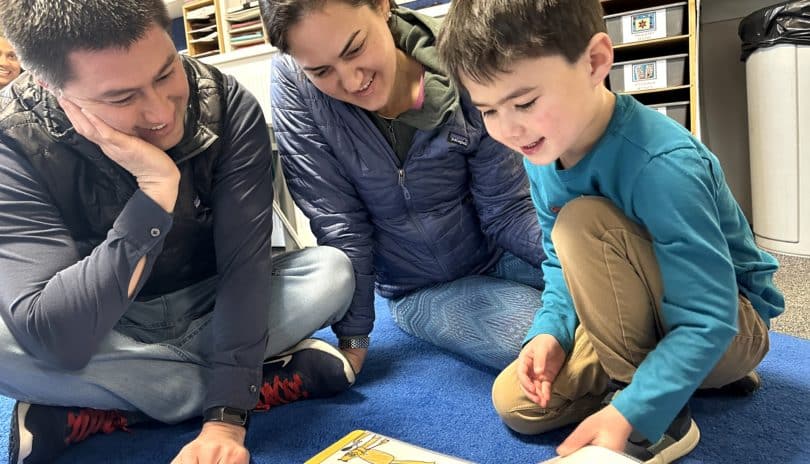Fifteen out of twenty DCD middle school students studying Latin in 7th and 8th grade were recently recognized for their performance on the National Latin Exam, which they took at the end of February.
In the 7th grade, there are two levels of recognition: Three students received a Certificate of Achievement, and three received a Certificate for Outstanding Achievement. In the 8th grade, there are four levels; Cum Laude, Magna Cum Laude, Maxima Cum Laude, and Suma Cum Laude. Three students received Magna Cum Laude recognition, and six students received the highest honor of Suma Cum Laude. Welcome to Latin at DCD!
Middle school students have their first taste of Latin during 6th grade when they spend half the year in Latin class and half the year in Spanish class. As they prepare to move up to 7th grade, students choose between Latin and Spanish for the rest of their time at DCD. This year, more than a third of students between 7th and 8th grade is studying Latin. Though it’s a smaller group of students that choose to study Latin, it’s an active one as evidenced by their performance on the exam. When asked what the recipe for this success is, DCD middle school Latin teacher Bo Harrington credits his engaged, hardworking students. The students will tell you that they really enjoy Mr. Harrington’s class because of the way he teaches Latin. “He makes it fun and interesting,” commented one student. On April 21st, Latin students celebrated the founding of Rome with a birthday party. According to Mr. Harrington, students who enjoy math and science often enjoy Latin. “It’s very analytical and almost like a puzzle,” he explained. “They seem to enjoy breaking down the pieces of a sentence and seeing how changing word endings can impact its meaning.”
While among the many benefits of studying Latin is building a student’s vocabulary, Mr. Harrington’s heavy focus on grammar gives them an excellent foundation for learning how languages work in general. This helps students in their own writing as well as gives them a strong foundation for their study of modern languages down the road. He also includes some ancient Roman history as a context for studying the language in 8th grade, and in 7th grade, students read an adapted version of Virgil’s Aeneid. When asked about challenges students might face in studying Latin, he says that not being able to practice speaking with others makes it harder to learn than more modern spoken languages. “It’s not like you can land in Rome and practice your Latin,” he jokes. However, he acknowledges that for most of his students, this doesn’t seem to really matter. To them, Latin is very much alive, and definitely not dead!
“Lingua longa, vita brevis – language is long, life is short.” Studying the Latin language remains timeless, even at DCD.







